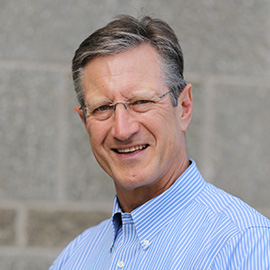Why Some People Never Die, Part II: Success Starts with Caring

University of Michigan Football Coach Bo Schembechler, who led the Wolverines from 1969 to 1989, cared deeply for his players, both as individuals and as a team. This was the central theme at the Rose Bowl Legacy Foundation ceremony honoring him last month in Pasadena. A common message among the speakers was that Bo’s impact went beyond wins and losses. His former players and colleagues shared stories about the life lessons that guide them to this day, reflecting his genuine—and effective—concern for their future well-being. Football was Bo’s way of making a difference in the lives of young people. His care focused on their future and how he could help them reach their full potential.
Michigan’s Athletic Director, Warde Manual, captured Bo when he said: “[Bo’s mantra] ‘The team, the team, the team’ has meaning beyond sports and is what we should strive for in life. To make things better, to be successful, to drive success in others, not only in yourself, but to be champions of other people.”
That is why Bo once told me, “I am never going to die.” His legacy endures because he embodied a life of service that continues to ripple outward.
The Four Stages of Fulfillment
At FS/A, we developed a framework to describe the four stages of fulfillment we move through in our lives, and Bo lived each with purpose:
- Stage I Fulfillment – Meeting our primary physical needs.
- Stage II Fulfillment – Learning, growing and competing.
- Stage III Fulfillment – Benefiting others.
- Stage IV Fulfillment – Creating a better tomorrow.
Each of us experiences all four stages daily as adults. The first three stages are foundational, but the sense of fulfillment is temporary. In Stage IV, we create genuine legacy and find lasting fulfillment.
Dick Caldorazzo, my former teammate and a close friend of Bo’s, put it this way: “He challenged every one of us to go farther, to try harder, dream bigger, be better, and be worthy of playing for Michigan. He wanted us to become good spouses, good fathers, good friends, and good citizens.”
That is what Stage IV leaders do—they challenge and help others develop into more than they thought possible.
The Brain Science of Service
Modern neuroscience explains why this works:
- In Stages of Fulfillment I–III, stress hormones like adrenaline and cortisol are dominant. They help us survive, but they also make us reactive and self-focused.
- At Stage IV, different chemicals come into play. Oxytocin encourages trust and bonding. Serotonin helps create a feeling of happiness. Balanced dopamine rewards our achievements.
This is why those who serve a purpose greater than themselves not only feel more fulfilled but also inspire others. Their intrinsic energy radiates a contagious vitality.
The Ripple Effect of Purpose
Bo’s influence extended beyond his coaching years. It endures because he lived life intentionally at Stage IV Fulfillment, when we create our legacy. His players became better teammates, spouses, fathers, and citizens—because he expected more from them than they believed possible.
Dick Caldorazzo shared: “He was molding us into ‘the team, the team, the team,’ and he was laying the foundation for each one of us to be successful after our playing days were over.”
That is what Stage IV Fulfillment entails: not just building a team for Saturday’s game but shaping individuals for a lifetime.
An Invitation to Reflect
Ask yourself:
- Which stage of fulfillment am I living in most of the time?
- What might it look like to fully embrace Stage IV—living in service of something greater?
Bo’s words were bold, but they were true: “I am never going to die.”
When we live with a Stage IV Purpose, caring for others not just today but also for their future, we improve the world because we lived; our legacy remains.
Next week, in Part III of this series, we will share how we can learn from Bo and leave the world a little better than we found it.






